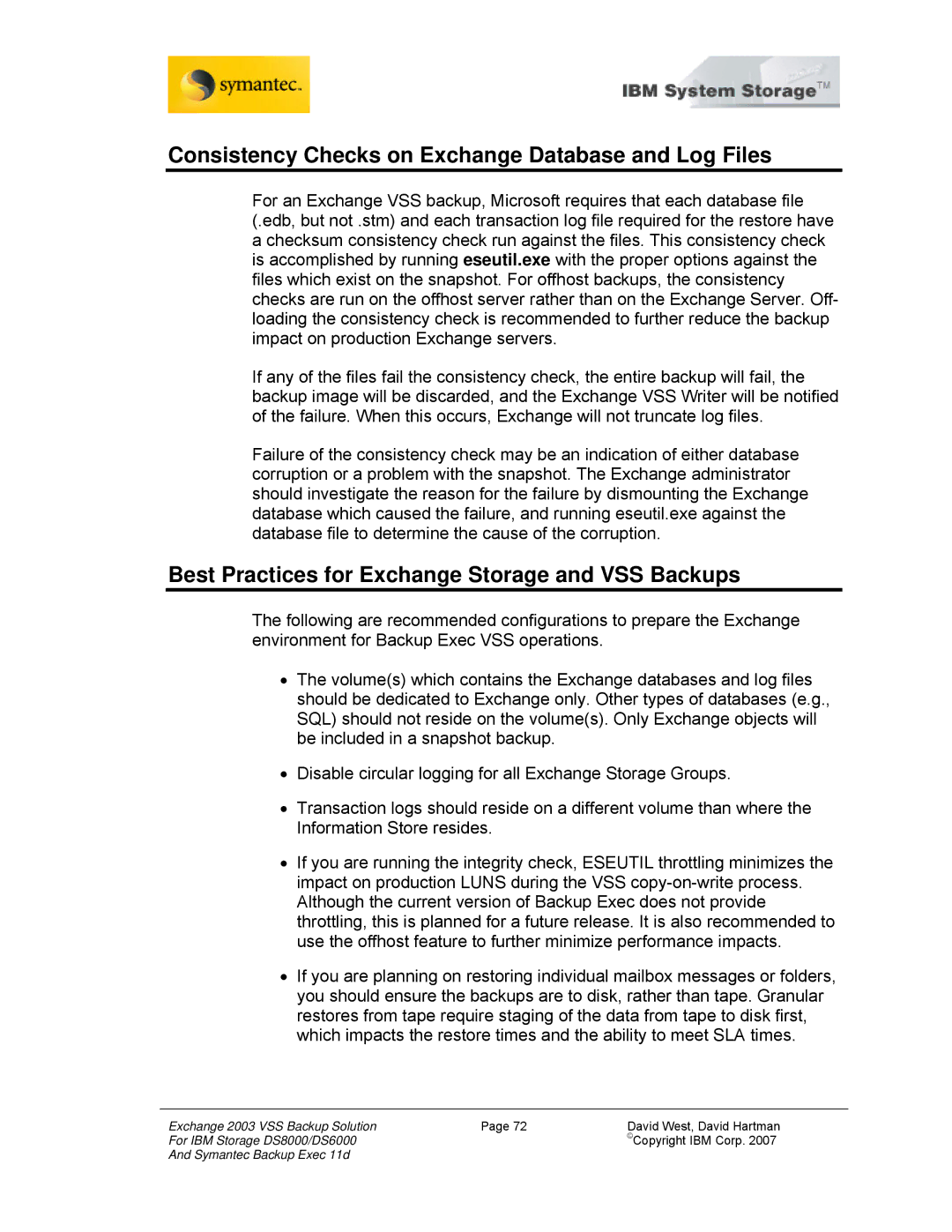
Consistency Checks on Exchange Database and Log Files
For an Exchange VSS backup, Microsoft requires that each database file (.edb, but not .stm) and each transaction log file required for the restore have a checksum consistency check run against the files. This consistency check is accomplished by running eseutil.exe with the proper options against the files which exist on the snapshot. For offhost backups, the consistency checks are run on the offhost server rather than on the Exchange Server. Off- loading the consistency check is recommended to further reduce the backup impact on production Exchange servers.
If any of the files fail the consistency check, the entire backup will fail, the backup image will be discarded, and the Exchange VSS Writer will be notified of the failure. When this occurs, Exchange will not truncate log files.
Failure of the consistency check may be an indication of either database corruption or a problem with the snapshot. The Exchange administrator should investigate the reason for the failure by dismounting the Exchange database which caused the failure, and running eseutil.exe against the database file to determine the cause of the corruption.
Best Practices for Exchange Storage and VSS Backups
The following are recommended configurations to prepare the Exchange environment for Backup Exec VSS operations.
•The volume(s) which contains the Exchange databases and log files should be dedicated to Exchange only. Other types of databases (e.g., SQL) should not reside on the volume(s). Only Exchange objects will be included in a snapshot backup.
•Disable circular logging for all Exchange Storage Groups.
•Transaction logs should reside on a different volume than where the Information Store resides.
•If you are running the integrity check, ESEUTIL throttling minimizes the impact on production LUNS during the VSS
•If you are planning on restoring individual mailbox messages or folders, you should ensure the backups are to disk, rather than tape. Granular restores from tape require staging of the data from tape to disk first, which impacts the restore times and the ability to meet SLA times.
Exchange 2003 VSS Backup Solution | Page 72 | David West, David Hartman |
For IBM Storage DS8000/DS6000 |
| ©Copyright IBM Corp. 2007 |
And Symantec Backup Exec 11d |
|
|
